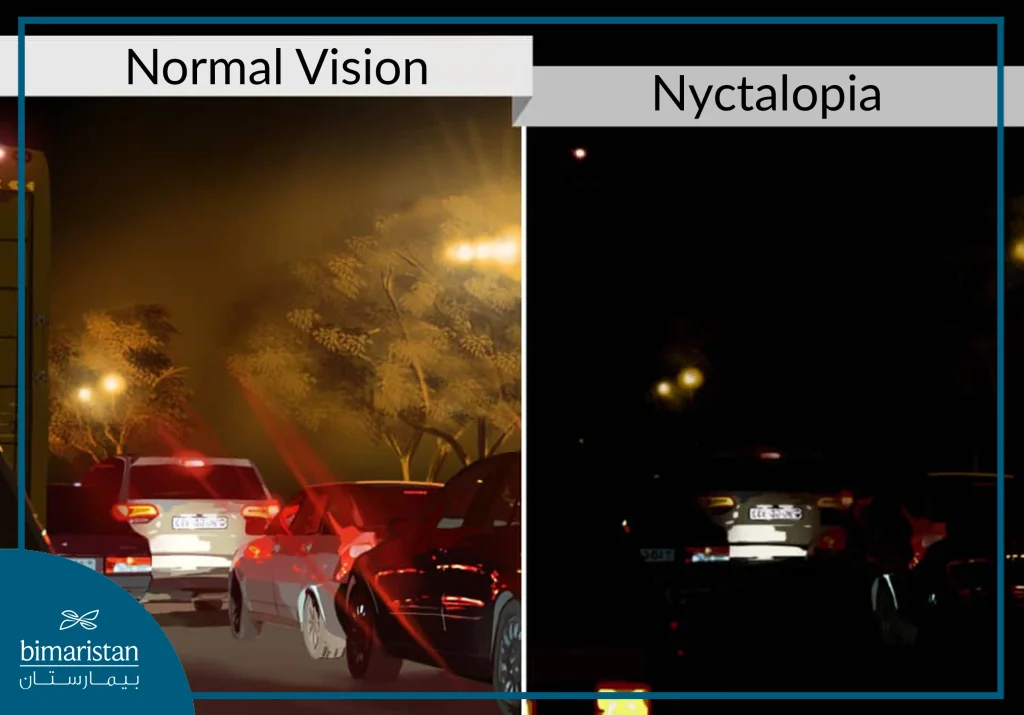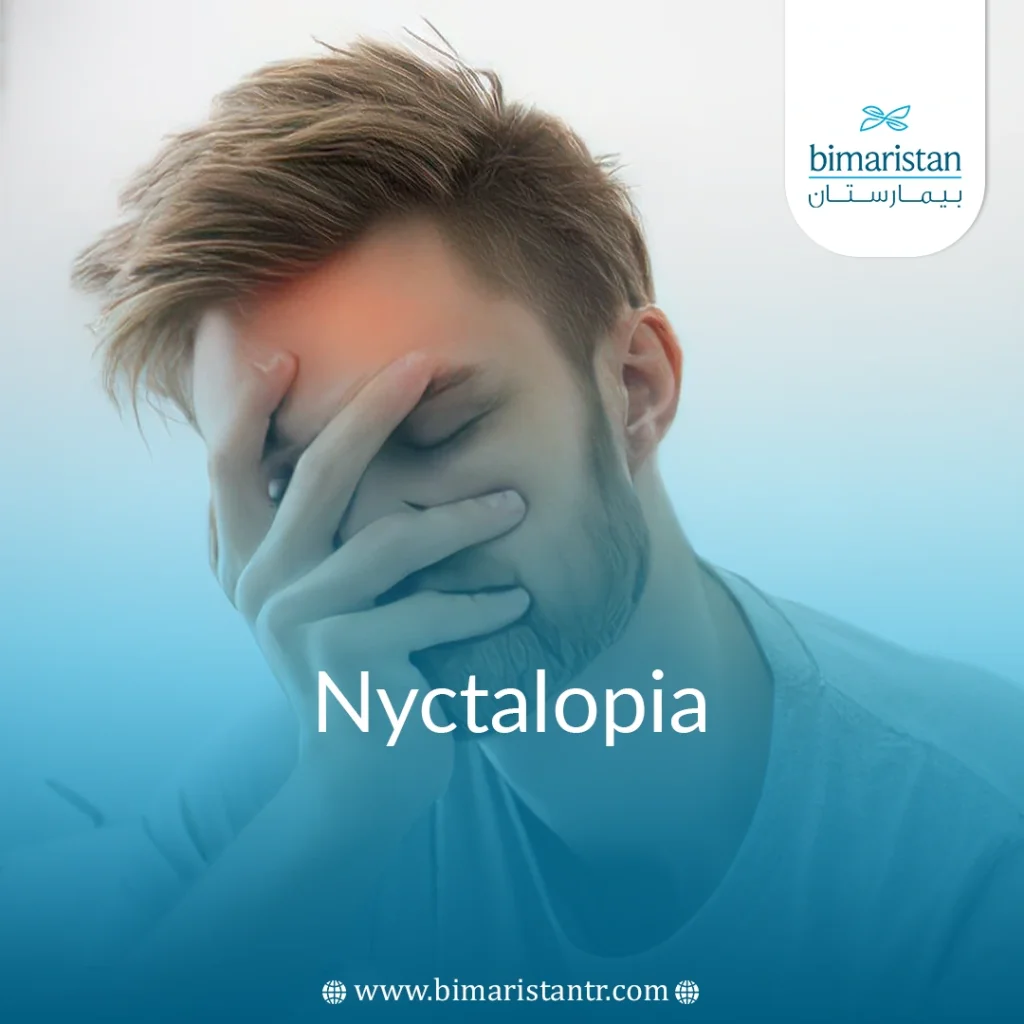Nyctalopia, or night blindness, is a visual impairment that primarily affects vision in the dark. It is a symptom of an underlying condition rather than a condition itself. People with nyctalopia often struggle to see at night or in low-light environments. There are various causes, and treatment depends on identifying the specific underlying condition. In this article, we will explore nyctalopia, its causes, symptoms, and treatment methods available in Turkey.
What is nyctalopia?
Nyctalopia, also known as night blindness, is an impairment in a patient’s ability to see at night or in low light (e.g., in a movie theater).
The human eyes constantly adapt to light changes based on their physiological state. Usually, at night or in the dark, the pupil dilates, allowing more light to enter the eyes, and the retina (a network of cells or visual receptors that includes cones and rods) receives this light.
Sticks and cones are light-sensitive cells; cones help distinguish colors, and sticks have a role in seeing in the dark.
Night blindness is often associated with an inability to adapt quickly when moving from well-lit environments (light or day) to dimly lit or dark conditions (night or darkness) poor light.
Nyctalopia is not a disease in and of itself but rather a symptom of an underlying eye disease, usually retinal dysfunction (due to disrupted rod function) or visual issues such as myopia.
Symptoms of nyctalopia
Nyctalopia is itself a symptom, and a night blindness patient may experience the following issues:
- Poor vision at night: Affected people experience an inability to see in a dark environment (difficulty driving or recognizing faces at night) and tripping over objects while moving because they can’t see them.
- Inflammation of the cornea: Patients with blindness may develop keratitis, whose symptoms include dryness and irritation of the cornea.
- It takes a long time to adjust the visual ability when changing the lighting.

Causes of nyctalopia
There are many possible causes of this disease; here are the most common causes of night blindness:
- Low vision issues such as myopia (nearsightedness)
- Glaucoma (high eye pressure) or medications used to treat it that shrink the pupils of the eye
- Cataracts
- Vitamin A deficiency, especially in individuals who have undergone gastric bypass surgery
- Diabetes
- Keratoconus, which means the cornea becomes cone-shaped
- Astigmatism
- Hereditary causes (hereditary night blindness) include retinitis pigmentosa, a rare genetic disease that can be partially reversed by stem cell therapy.
- Uveal melanoma (the most common type of eye cancer)
To determine the cause of your nyctalopia, your doctor will perform a thorough eye examination and may order several images and tests.
Bimaristan Medical Center will help you choose the best eye hospital with the latest equipment in Turkey.
Nyctalopia treatment in Turkey
Depending on the cause, treatment for night blindness can be as simple as getting new eyeglasses or contact lenses to improve vision and treat low vision or switching glaucoma medications.
Treatment may require surgery, such as LASIK, to correct the shape of the cornea or if a cataract causes nyctalopia.
When the cause of nyctalopia is vitamin A deficiency, treatment will require the introduction of vitamin A into the diet.
Hereditary night blindness cannot be cured, as in retinitis pigmentosa. Although there is currently no cure for this condition, studies are ongoing.
If you have a retinal disease, treatment will depend on the type of disease and will require additional examination by a retinal specialist.
Night blindness cannot be treated at home. Early medical advice is essential to provide proper treatment.
Preventing nyctalopia
You can’t prevent night blindness caused by birth defects or genetic issues, but you can control your lifestyle. Try the following to prevent night blindness:
- Eat foods rich in vitamin A, such as Carrots, cantaloupe, spinach, milk, eggs, pumpkin, mango, and liver.
- Make sure to eat a regular diet that contains minerals, vitamins, and antioxidants to avoid ocular cataracts.
- Monitor your blood sugar frequently to prevent diabetes.
- Get regular eye exams: Early detection is the best treatment.
- Wear sunglasses to protect your eyes from the sun’s harmful rays; UV rays increase your risk of cataracts, macular degeneration, and glaucoma.
- Exercise: Exercise may reduce the risk of eye disease by lowering eye pressure and blood sugar levels.
Sources:
- BMJ Best Practice
- Specsavers
